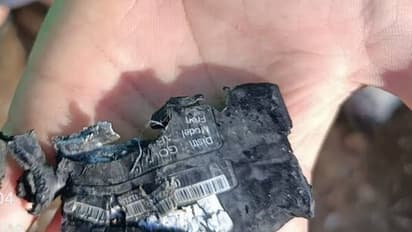Pager explosion in Lebanon: Decoding device that led to major breach in Hezbollah's communication system

Synopsis
Pagers, also known as beepers, are wireless telecommunications devices designed to receive and display alphanumeric or voice messages.
A wave of mysterious explosions involving pagers swept across Lebanon on Tuesday, killing at least eight people and wounding over 2,700 others. The blasts, which occurred predominantly in Beirut’s southern suburbs and other regions, have left the nation in turmoil as authorities scramble to uncover the cause behind the unprecedented incidents.
The explosions, which began at 3:45 pm local time and lasted approximately an hour, caused widespread panic. Many of the affected devices were pagers, which had reportedly been used by members of Hezbollah, a powerful political and military organization in Lebanon. The Lebanese health ministry confirmed that eight people had lost their lives, while hundreds remain critically injured, including 200 in critical condition. Hospitals across the region remain overwhelmed with victims suffering severe injuries, many involving their hands and limbs.
What are pagers?
Pagers, also known as beepers, are wireless telecommunications devices designed to receive and display alphanumeric or voice messages. Once highly popular in the 1980s and early 1990s, their usage has drastically declined in recent years with the advent of smartphones.
However, specific professional groups, particularly in medical fields, continue to use pagers due to their reliability.
In Lebanon, members of Hezbollah have relied on pagers as a means of internal communication, as these devices are considered less traceable than mobile phones.
Hezbollah officials confirmed that many of the exploded devices belonged to their members. The group, known for its careful communication protocols, had long used pagers as a supposedly secure mode of messaging. The sudden explosion of these devices has raised significant concerns within the organization.
A senior Hezbollah official labeled the detonations as a "significant security breach," suggesting that the organization’s encrypted communication systems may have been compromised.
Israel accused of covert operation
The explosions have exacerbated tensions in Lebanon, particularly between Hezbollah and its longstanding adversary, Israel. Shortly after the incidents, Hezbollah issued a statement directly blaming Israel for the coordinated explosions, calling them an "act of criminal aggression." Hezbollah accused Israeli forces of launching a covert operation that caused the devices to detonate, potentially using advanced technological methods to remotely trigger the blasts.
“We hold the Israeli enemy fully responsible for this criminal aggression,” Hezbollah stated. “Israel will certainly receive its just punishment for this sinful act.” The group warned that retaliation would follow, further escalating an already tense situation between the two rivals.
Israel has yet to comment on the accusations. However, the timing of these explosions comes on the heels of escalating confrontations between Hezbollah and Israeli forces, with Israeli officials previously hinting at potential military action against the group.
Speculation on the cause of explosion
The exact cause of the explosions remains unclear, but initial investigations have led to several theories. One hypothesis suggests that overheating lithium batteries inside the pagers may have triggered the explosions. However, some experts believe that the explosions could have been deliberately caused, possibly through advanced technological interference or hacking.
Lebanese authorities are urging caution and have recommended that citizens avoid using similar devices until more is known about the potential dangers. The government has launched a full-scale investigation into the incidents, with the assistance of local security agencies and telecommunications experts.
As Lebanon reels from the shock of the attacks, the country’s hospitals are on high alert, with medical professionals working tirelessly to treat the hundreds of wounded. Hospitals in Beirut have issued urgent calls for blood donations, and field hospitals have been set up to manage the influx of injured citizens.
The explosions have also raised fears of further retaliation. The blasts come at a time of heightened tensions between Hezbollah and Israel, which have been engaged in sporadic clashes along the Lebanon-Israel border in recent weeks. Analysts warn that the pager detonations could lead to further escalations, potentially drawing the region into a broader conflict.
The Lebanese government has expressed concern over the deteriorating security situation and has called for restraint.
Check the Breaking News Today and Latest News from across India and around the world. Stay updated with the latest World News and global developments from politics to economy and current affairs. Get in-depth coverage of China News, Europe News, Pakistan News, and South Asia News, along with top headlines from the UK and US. Follow expert analysis, international trends, and breaking updates from around the globe. Download the Asianet News Official App from the Android Play Store and iPhone App Store for accurate and timely news updates anytime, anywhere.